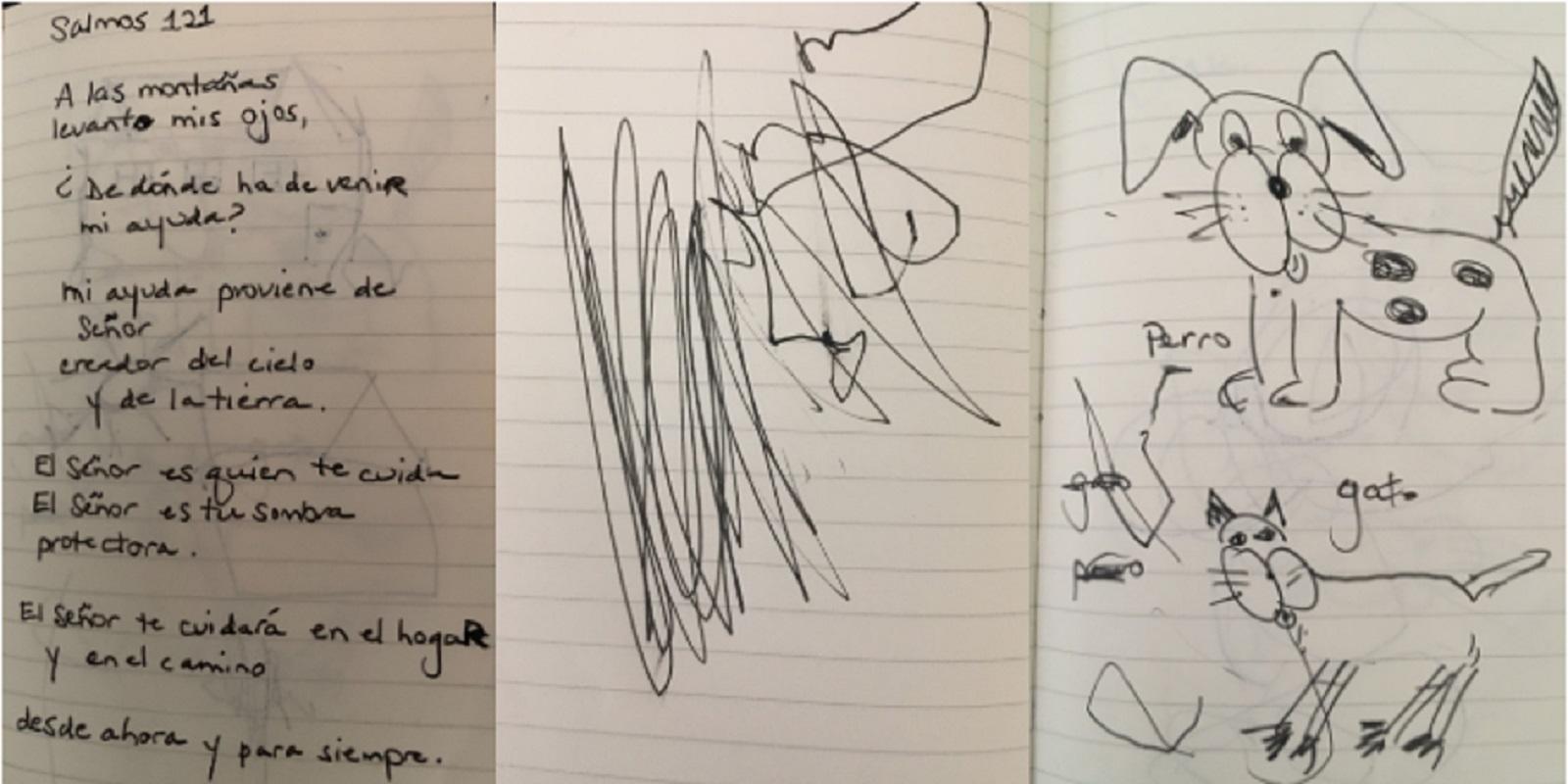The email request arrives on Friday at around 2:30 pm. The subject: “Accompaniment Urgently Needed for Asylum Court Case.” Volunteers are needed on June 6th.
It’s been more than five months since I returned from Nogales, where I was immersed for three days in the work of the KINO Border Initiative. There I learned what the Jesuits mean by accompaniment: “Accompany is to be present with people on their journey. We cannot change their situations or solve their problems; we can listen, reassure them we care and they are not alone.” I’ve been waiting since December to fulfill this mission here in Atlanta.
June 6th is the first day of my two-month summer vacation. I respond immediately: “I’ll be there.”
* * * * * * *
On the morning of June 6th, I’m riding a MARTA train, painstakingly transcribing verses of psalms, whispering the words in Spanish as I write, lifting my pen from the page as the train lurches to a halt at each station. Accustomed to traveling all the way downtown to the Capitol, I almost miss my stop. The federal building is only a few hundred paces from the MARTA exit. I empty my blazer pockets, place the contents, along with my umbrella, into a tray and pass through the metal detector. Checking the time on my phone as I step off the elevator, I realize I’m more than thirty minutes early.
I find a seat in the waiting area outside the courtroom and text the volunteer coordinator that I’ve arrived. Two attorneys sit opposite me, waiting for their clients. I open my notebook to the Salmos I’ve written in it and bow my head to pray. I don’t notice that one attorney has noticed me until he is standing next to me and introducing himself. He asks about my yarmulka, and when I tell him I’m a rabbi and why I’m here, he tells me he trained with the Jesuits. He shows me a medal of St. Ignatius that he keeps on his keychain and gives me his business card.
The volunteer coordinator arrives with the young woman we are accompanying to court. She is 23 years old—younger than my eldest daughter—but looks much younger. She is holding the hand of her 3-year-old son, who peeks out from behind her legs as I bend down to greet him. He smiles shyly, and ducks behind his mother.
I ask where she is from and she answers: Guerrero. In Nogales, I met many families that were fleeing unspeakable violence in this southern state of Mexico. The coordinator describes her situation and the purpose of her hearing, which is to file paperwork with the court. I help her staple passport photos to the documents she has brought. She is reticent, and I’m sure nervous, so we sit in silence until it’s time to enter the courtroom. I’m not sure what else to do, other than being present.
We enter the courtroom, and she heads to the front row with her son. While the other volunteers take seats in the second and third rows, I feel drawn to sit beside her. It may be an hour or more before her case is called; perhaps I can be helpful, like a kindly grandmother, and keep her son occupied while they wait.
I pull out my notebook and pen and begin to draw. My rudimentary drawing skills parallel my Spanish vocabulary. I draw a dog, a cat, some fish, a birthday cake with three candles. I whisper-sing cumpleaños féliz. I offer him a turn to draw; he fills the pages of my notebook with scribbles and empties the pen of ink.
For a moment I regret not having brought my purse, stuffed with paper and crayons.
My umbrella has a tie that snaps, which is less noisy than Velcro. I help him position his thumb and we push it closed together. Then we pull the snap open. “¡Otra vez!” he whisper-shouts. “Again!”
When his mother leaves the courtroom to use the restroom, I pull him into my lap and show him how to play “Here is the church.” I don’t know how to say steeple in Spanish, so I skip to “open the doors and here are the people.” He laughs out loud and wiggles his fingers; then we play another ten times, at least, silently gesturing exaggerated belly laughs until his mother returns. When his mother’s case is called, he sits quietly with her at the table, the adult-sized translation headphones repeatedly slipping from his ears to his shoulders.
The train ride home seems much longer, as I recite Psalms in Hebrew and scroll through the photos on my phone, alternating between pictures of my three days in Nogales and pictures of my three children. I’m not sure what else to do.
* * * * * * *
Before I sit down to write this post, I receive another urgent request to accompany an asylum seeker. Today I will spend the morning in immigration court—not solving any problems, not offering legal advice, not changing policies—just being present.


